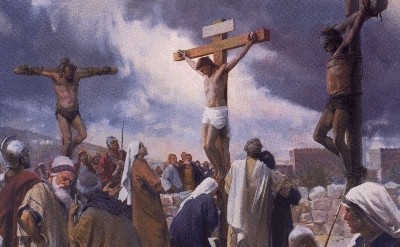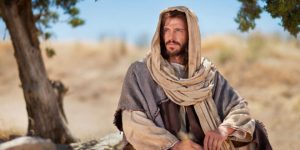Z pour Zacchaeus
He was small of stature but determined as no one else.
He knew what he wanted and… what he did not want!
He wanted to see the Man of Nazareth, and he did not want anything, or anyone, to prevent him from doing so!
He used a trick which served him well: he climbed a tree, a sycamore was there for his purpose.
He has seen, or rather… he has been seen!
He was seen, and he was challenged by the one he wanted to catch sight of.
From then on, his life was never the same again (Luke 19:1-10).
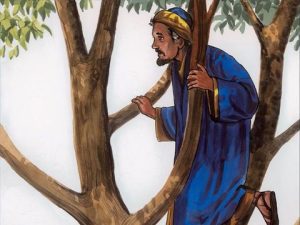 Many of you reading these lines recall the name of this original fellow.
Many of you reading these lines recall the name of this original fellow.
Zacchaeus, yes, Zacchaeus, the man with a more than doubtful reputation in the eyes of many.
But, also, the man who has received what his visitor was offering him: salvation, nothing less!
His life of duplicity became an example of a life of honesty and generosity.
Welcoming Christ in our lives – non once only but permanently – can achieve such a transformation!
For each one of us, ‘salvation’ will take on a personalized form and will be realized from day to day.
This period of Lent, coming to an end, may have allowed us to discover this…
Note: In the following video Zachaeus, personified by Augustine Sellam, shares with us his experience of meeting the Man of Nazareth: https://youtu.be/7TIwA1YgPII?si=oifyPpVawnYhEKWX
 The woman we meet in today’s gospel (Mark 5:21-43) was affected with a disease considered shameful in her society –
The woman we meet in today’s gospel (Mark 5:21-43) was affected with a disease considered shameful in her society –  This reflection came to me as I read the gospel text of this 3rd Sunday of Easter (Lk.24:35-48).
This reflection came to me as I read the gospel text of this 3rd Sunday of Easter (Lk.24:35-48).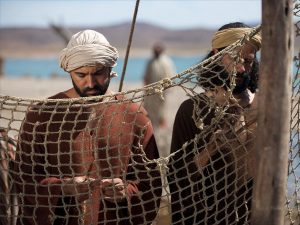 Yet, inspiration can be found there – this is the message I discover in today’s gospel text (Mk.1:14-20).
Yet, inspiration can be found there – this is the message I discover in today’s gospel text (Mk.1:14-20).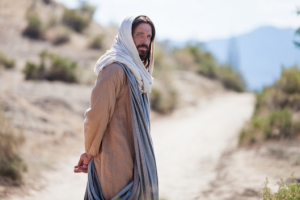 In today’s gospel text (Jn.1:35-42), we witness some questioning addressed to the one known as the Man of Nazareth.
In today’s gospel text (Jn.1:35-42), we witness some questioning addressed to the one known as the Man of Nazareth.